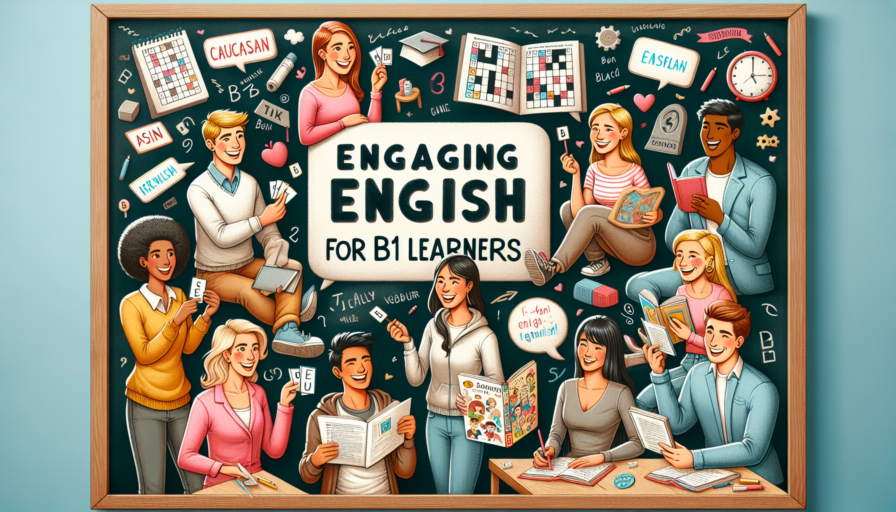
Contents
Engaging learners in the English language can be highly effective through English games designed specifically for B1 learners. At this intermediate level, students are ready to expand their vocabulary, build confidence, and improve their language skills in a fun and interactive way. English games not only enhance learning but also promote social interaction among peers, making lessons dynamic and memorable.
There is a variety of English games that cater to B1 learners’ needs. Some popular types include:
By incorporating these varied strategies, teachers can effectively utilize English games to address different learning styles among B1 students. Additionally, these games often provide immediate feedback, allowing learners to understand their progress and areas needing improvement. Creating a supportive environment through engaging activities fosters a passion for the English language and motivates B1 learners to actively participate in their own education.
Engaging in interactive games is one of the most effective ways to enhance English skills, especially for B1 learners seeking to solidify their language proficiency. Here, we’ve compiled the top 5 interactive games designed to make learning fun and impactful.
These top 5 interactive games serve as an enjoyable method to boost English skills, enabling B1 learners to practice language components in a dynamic environment. Incorporating games into regular study routines not only makes learning enjoyable but also fosters long-lasting language retention.
Incorporating engaging games into your English lessons for B1 students can significantly enhance their learning experience. Engaging games not only make the lessons more interactive but also reinforce language skills in a fun and stimulating environment. Here are some effective strategies for integrating these games into your curriculum:
Additionally, consider incorporating games that foster teamwork and collaboration among students. Group activities, such as scavenger hunts with clues written in English, can promote both language practice and social interaction. By consistently interspersing these engaging games into your lessons, you’ll create a dynamic learning environment that captivates your B1 students and enhances their English language acquisition.
Incorporating games into English language learning for B1 level students offers a variety of significant advantages that enhance the overall learning experience. These benefits cater specifically to the cognitive and social aspects of language acquisition, making learning more engaging and effective.
The integration of games into English language learning at the B1 level not only makes the process enjoyable but also significantly enhances key language competencies. As students engage in these fun activities, they are more likely to develop a lasting understanding and appreciation for the English language.
Creating your own engaging English games for B1 learners can be a rewarding endeavor, not only for enhancing language skills but also for making learning fun and interactive. Here are some effective tips to help you design games that will captivate and motivate your students.
1. Align Games with Learning Objectives: Always begin by identifying the language skills and vocabulary that need reinforcement. Ensure your English games target specific areas such as grammar, speaking, or vocabulary retention to maximize their educational value.
2. Incorporate Collaborative Elements: Allow B1 learners to work in pairs or small groups. Collaborative English games encourage communication and teamwork, helping students practice their language skills in a supportive environment. Try games like team trivia or role-playing scenarios.
3. Use Varied Formats: Keep engagement high by mixing up the formats of your English games. Include board games, card games, digital quizzes, or even scavenger hunts. Each format offers different dynamics, ensuring that learning remains fresh and exciting for B1 learners.
4. Foster Creativity and Personalization: Encourage learners to personalize games based on their interests. Allow them to create their own questions, challenges, or storylines. This not only enhances their engagement but also makes the learning experience more meaningful.
5. Keep it Fun and Interactive: The primary goal of any English game is to promote enjoyment while learning. Incorporate elements such as humor, music, or reward systems to keep the atmosphere lively and encourage participation.